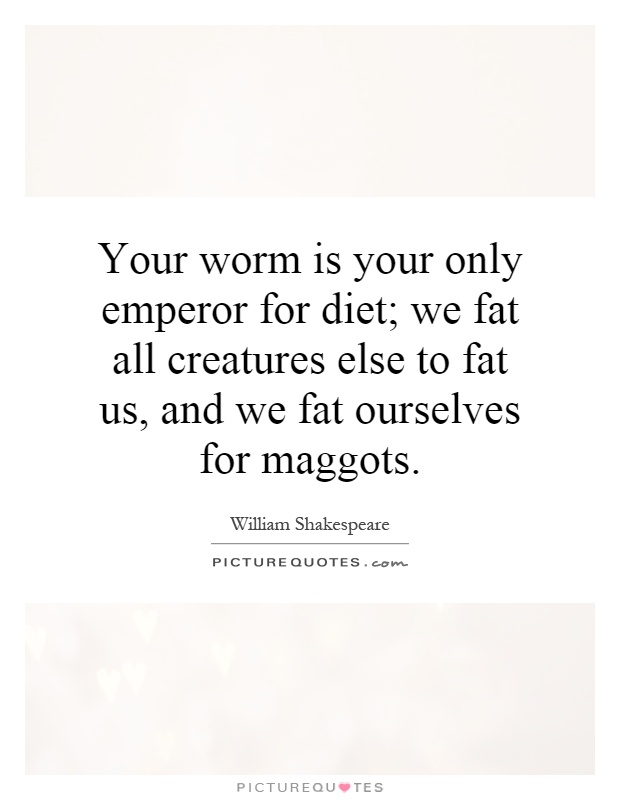Your worm is your only emperor for diet; we fat all creatures else to fat us, and we fat ourselves for maggots

Your worm is your only emperor for diet; we fat all creatures else to fat us, and we fat ourselves for maggots
In William Shakespeare's play, "Hamlet," the character Hamlet speaks these words in Act IV, Scene III. This quote is a powerful and thought-provoking reflection on the nature of life and death, as well as the inevitability of mortality.The phrase "Your worm is your only emperor for diet" suggests that in the end, all living beings are consumed by worms and decay. No matter how powerful or wealthy one may be in life, in death, we are all equal in the eyes of the earth. This idea of mortality and the transience of life is a recurring theme in Shakespeare's works, as he often explores the fragility of human existence and the inevitability of death.
"We fat all creatures else to fat us" speaks to the idea that humans consume other living beings for sustenance, ultimately leading to our own demise. This can be interpreted as a commentary on the cycle of life and death, as well as the interconnectedness of all living things. Shakespeare often explores the complexities of human nature and the consequences of our actions, and this quote is no exception.
"And we fat ourselves for maggots" further emphasizes the idea of mortality and decay. The image of maggots feeding on our flesh after death is a stark reminder of our own mortality and the impermanence of life. This quote serves as a reminder to live life to the fullest and to appreciate the time we have, as ultimately, we are all destined for the same fate.
Overall, this quote from "Hamlet" is a powerful reflection on the nature of life and death, as well as the inevitability of mortality. Shakespeare's exploration of these themes serves as a reminder of the fragility of human existence and the importance of living a meaningful and purposeful life.












 Friendship Quotes
Friendship Quotes Love Quotes
Love Quotes Life Quotes
Life Quotes Funny Quotes
Funny Quotes Motivational Quotes
Motivational Quotes Inspirational Quotes
Inspirational Quotes